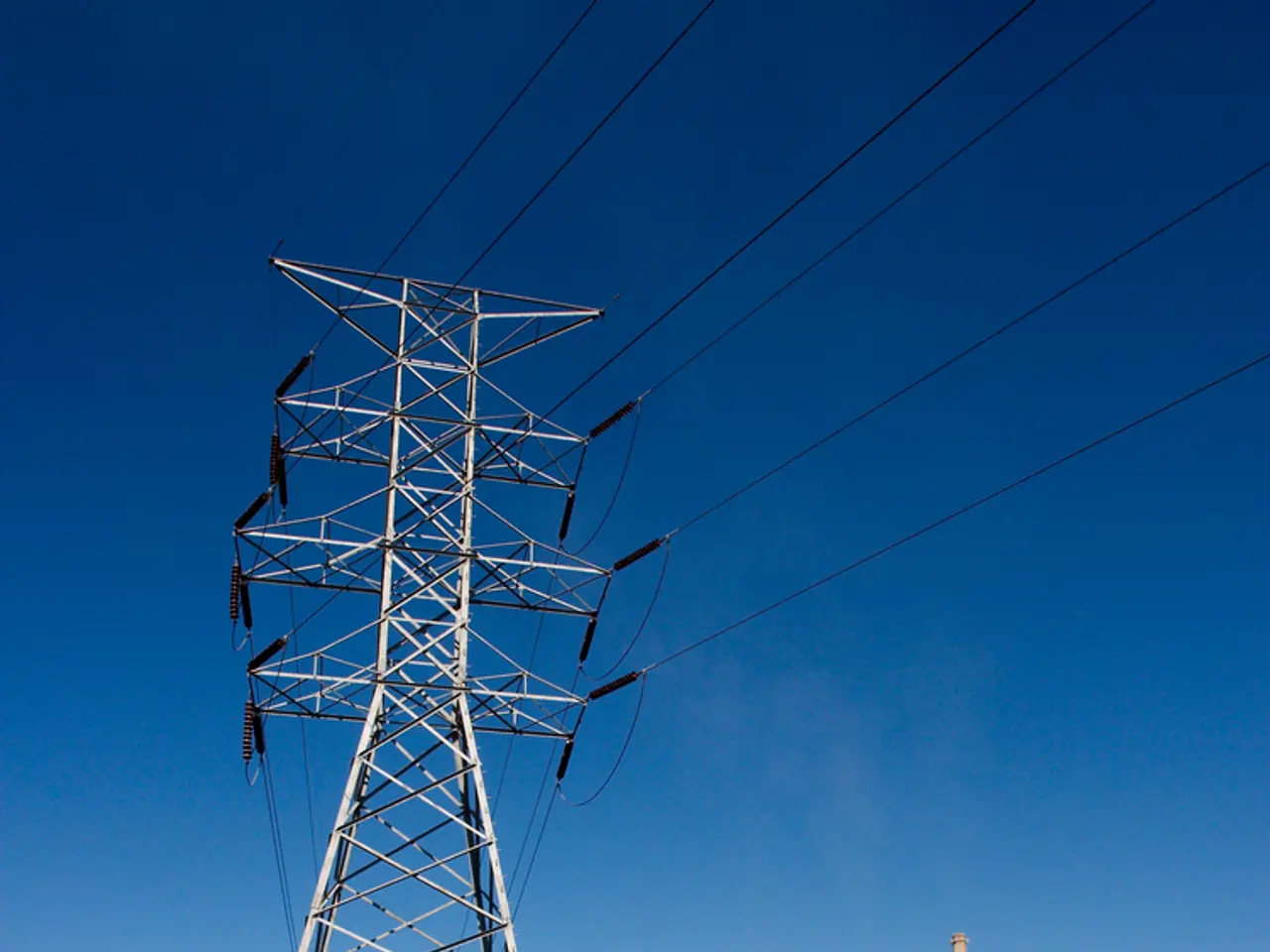Network status reported as tense by TransnetBW
Germany Faces Power Grid Instability Due to Renewable Energy Oversupply
Germany is bracing for a potential power grid instability due to an oversupply of renewable electricity, as a storm is expected to hit the North Sea on Tuesday, September 19, 2023. The grid operator TransnetBW has announced a tight network situation from 10 a.m. to 12 p.m. on that day.
This issue arises when the renewable energy generation exceeds the capacity to transmit the power to other parts of the country, leading to a power grid instability. In such weather conditions, additional electricity has to be generated, or external electricity has to be purchased, in this case, in southern Germany, to keep the power grid stable.
Tight network situations in electricity grids, particularly during weather differences, are primarily caused by high electricity demand coinciding with limited transmission capacity, leading to congestion. Factors such as peak demand periods, weather variations, localized stress points, grid design limits, and increasing demand growth contribute to this congestion.
Peak demand periods, such as early evenings when many households and businesses consume power simultaneously, strain and congest the transmission networks. Weather variations, like hotter or stormier conditions, can increase energy use for cooling or disrupt infrastructure, intensifying stress on the grid. Localized stress points, such as residential neighborhoods with many electric vehicle (EV) chargers operating simultaneously during peak times, cause localized grid congestion.
The grids are built to handle peak demand that occurs only a few hours yearly, leading to underutilization otherwise and congestion during those peaks. The increasing demand growth, due to electrification, industrial expansion, AI data centers, and rapid EV adoption, is pushing demand higher, often faster than grid improvements can keep up with.
Consumers can help reduce electricity consumption during tight grid times through several behaviors. These include shifting activities such as laundry, heating/cooling, and EV charging to off-peak periods, participating in demand response programs, using smart charging systems for EVs, increasing energy efficiency, and supporting grid flexibility technologies.
TransnetBW is requesting power consumers to help save electricity on Tuesday morning, from 10 a.m. to 12 p.m., by reducing their consumption. This request aims to save costs and carbon dioxide emissions. Any necessary power consumption should be shifted to the period from 6 a.m. to 10 a.m. on the same day.
This is not the first time weather differences in the Federal Republic have been linked to tight network situations. The German Weather Service predicts a storm at the North Sea, with lively south-west to west wind and heavy storms on the North Sea islands.
By taking these steps, consumers can play a crucial role in balancing reliability, cost, and renewable integration, ensuring a stable power grid for all.
- In the context of Germany's power grid instability due to renewable energy oversupply, the science of environmental-science provides insights into managing energy demands more efficiently.
- As the renewable energy industry expands, it is crucial to invest in finance for the development of grid flexibility technologies, aiding in the management of climate-change-induced power supply variations.
- Despite the oversupply of renewable energy, tight network situations can still arise during peak demand periods, when industry and households consume power simultaneously, requiring balancing strategies.
- Supporting renewable energy sources is essential, but it's equally important to consider the financial and environmental implications of managing the grid in the face of oversupply and demand spikes.




